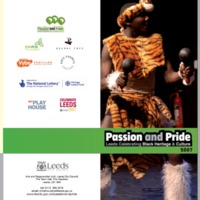
Passion and Pride
Passion and Pride was a creative partnership project bringing together Leeds City Council's Arts and Regeneration Unit with twelve local community organisations. Building on momentum established through Black History Month, the performances, exhibitions and workshops celebrated black heritage and culture in Leeds during 2007. Highlights included the performance of 'Grandma's Story' at West Yorkshire Playhouse by the 10-2 Club, a short play about the real life experience of living through slavery.
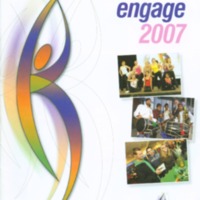
Engage 2007
The Engage 2007 Festival of Culture celebrated cultural freedoms in South Gloucestershire. Led by South Gloucestershire Council, and in partnership with local volunteer groups, schools and community groups, the festival took place on 17 November 2007. It featured 40 live performances of drama, dance and music from India, China, Africa, South America and Europe, a world food zone, family workshops, youth and environmental activities and 60 interactive and information stalls. The Impact exhibition was produced as part of Engage 2007, exploring the part that people living in South Gloucestershire played slavery and abolition.
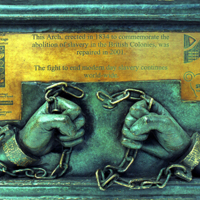
Anti-Slavery Arch, Stroud
The Anti-Slavery Arch in Stroud is Britain's oldest anti-slavery memorial. It was built by Henry Wyatt in 1834 to celebrate the passing of the Abolition of Slavery Act of 1833. A local businessman and supporter of the Stroud Anti-Slavery Society, Wyatt built the arch as an entrance to the carriage drive of his private estate. Established in 2000, the 'Anti-Slavery Arch Group' raised funds to address the preservation needs of the arch. This community project carried out major stone repairs, added a bronze plaque, produced a leaflet and website, and wrote and performed a play with students from Archway School (built on the site of Wyatt's mansion in the 1960s). In 2007, the monument was upgraded from a Grade II listing to Grade II*.
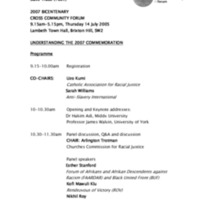
2007 Bicentenary Cross-Community Forum
The main aim of the 2007 Bicentenary Cross-Community Forum (2007BCCF) was to facilitate space for dialogue and alliance building in areas of work connected to the legacies of enslavement, related global injustices today and contemporary forms of slavery. The forum was jointly convened by Rendezvous of Victory, Anti-Slavery International and the World Development Movement. The education initiative aimed to assist in discussion and alliance-building on issues arising from the legacies of African Enslavement such as Maangamizi (Afrikan Holocaust) Awareness, Afriphobia, reparations, global injustices today and contemporary forms of enslavement. Open meetings were held in London between 2005 and 2007, and the group produced the 2007 Cross-community e-bulletin three times a year, including comment pieces about the significance of 2007. Task Action Groups were set up, such as the Cross-Community Dialogue Action Group on Education (CCODAGE), jointly hosted by the Council for Education in World Citizenship and the School of Education at Kingston University. A Global Justice Forum was developed out of the 2007BCCF in order to advance work beyond 2007.
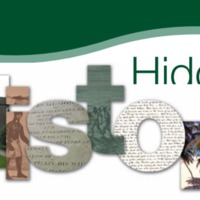
Hidden History of the Dales
This project was a collaboration between the Dales Countryside Museum in Hawes and North Yorkshire Record Office to research people and places of the Yorkshire Dales connected with Africa, the Caribbean and India. 'Hidden History' collected local stories of slave owners and traders, abolitionists, Africans and Asians who moved to the Dales, and others like the actor Ira Aldridge who passed through. The project included various community activities. Working with actor Joe Williams, pupils from the Wensleydale School explored the life of Olaudah Equiano and performed alongside Joe at the exhibition opening. There were drop-in sessions on exploring family history, carnival costume making, talks and music. The exhibition toured to other locations in Yorkshire, including Boroughbridge Library. The Dales Countryside Museum has continued to collect information relating to individuals who were connected with the Yorkshire Dales and the wider world.
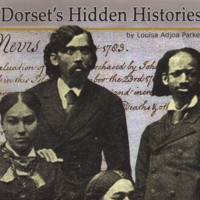
Dorset's Hidden Histories
DEED (Development Education in Dorset) works within the community to develop understanding of global education and cultural diversity. The charity produced and made available to hire the Dorset's Hidden Histories touring exhibition, which explored 400 years of the stories of people with African and Caribbean heritage across Dorset, Bournemouth and Poole. Many Dorset families were involved in slavery, either owning or trading in African slaves, and Black people were brought to Dorset by slave traders to live as servants in the large country houses. The exhibition, which is still available to borrow, also includes details of African American GIs on Poole Quay, a freed enslaved American living in Bournemouth, and Belle Davis, the African-American singer and dancer who performed in Weymouth in 1917. The organisation worked with Louisa Adjoa Parker, a local poet and black history researcher, to provide creative writing workshops to explore the exhibition. An accompanying booklet, written by Parker, can be purchased from DEED.
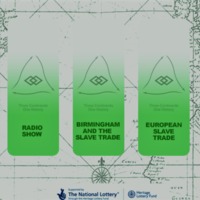
Three Continents, One History: Birmingham, the Trans-Atlantic Slave Trade and the Caribbean
'Three Continents, One History' was a community project led by the African-Caribbean Millennium Centre (ACMC) to explore the historical links between Birmingham, the transatlantic slave trade and the Caribbean. Research focused on themes such as the region's manufacturing history and its links to slavery, the role of local regiments in keeping order on Caribbean plantations, the African presence in the West Midlands, and the region’s role in the abolitionist movement. The project aimed to examine the contemporary relevance of 1807 and the slave trade to Birmingham’s diverse communities, to contribute to a reshaping of the National Curriculum, to establish a physical archive and an interactive website. The research was shared with the public via weekly broadcasts on New Style Radio (a community radio station housed in ACMC) and simulcasts with Caribbean and African radio stations. Other events included conferences, dramatisations and discussion workshops.
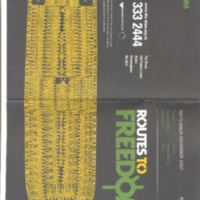
Connexions: History in the Making
20 young people from the Aston area of Birmingham worked on a commemorative project exploring the impact of the 1807 Act on the African, Caribbean and Asian communities in the UK and the contributions of these communities to British society since then. Their performance at The Drum showcased poetry, singing and dance.
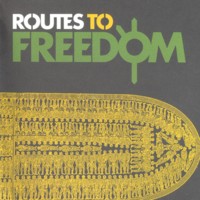
Routes to Freedom
The 'Routes to Freedom' season of events took place throughout Autumn 2007 at The Drum, an intercultural arts venue in Birmingham. The programme explored the struggle for social justice and equality in relation to African, Asian and Caribbean communities, and marked two key historical events and their impact: the bicentenary of the Abolition of the Slave Trade Act and the 60th anniversary of the partition of the Indian subcontinent. The programme was made up of theatre productions, touring exhibitions, film screenings, readings, dance performances and special events, including 'Coolies of the Caribbean' and a conference about Olaudah Equiano.
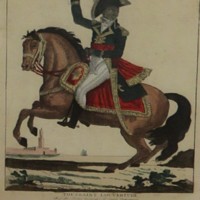
Freedom Think Tank
Freedom Think Tank was a time limited Black-led voluntary group established to influence the agendas of organisations in the North East commemorating the bicentenary of the abolition of the slave trade. The group also organised commemorative events, focusing on themes of promoting social solidarity and raising awareness of the participation of Black people in abolition.
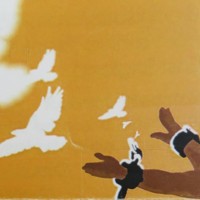
Liberation Lullabies
The North East Cultural Diversity Arts Forum (NECDAF) is an umbrella organisation for arts and cultural organisations promoting arts practitioners from ethnic minority communities in North East England. Liberation Lullabies was their event to commemorate the Abolition Act at the Tyneside Cinema in Gateshead. The show featured Congolese singer Robert Maseko and his band Congobeat, and the Sun Dance group performing traditional African dance,
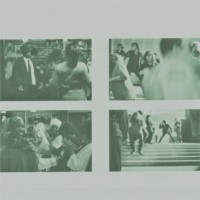
Down at the Bamboo Club: Film, Participation and Re-enactment
Down at the Bamboo Club was organised by Picture This, an artists' film and video commissioning agency in Bristol. The project was an exhibition of artists' video exploring Bristol's cultural histories and ideas of legacy. Contemporary artists worked with community groups to develop films and events that used the device of re-enactment to explore subjects such as community relations, identity, the legacy of slave trading in the city and histories of division and solidarity. One such film was 'Bamboo Memories' by Barby Asante. The Bamboo Club was a legendary Bristol nightclub in the 1960's and 1970's which holds great significance for older generations in the city as a place where first groups of African-Caribbeans socialised with white Bristolians.
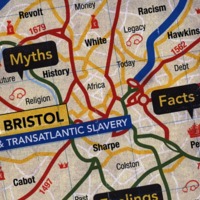
Myths, Facts, Feelings: Bristol and Transatlantic Slavery
The project to produce the booklet Myths, Facts and Feelings: Bristol and Transatlantic Slavery began in 2007. The Bristol Race Forum aimed to tackle some of the sensitivities, misunderstandings and popular opinions about the subject, and particularly in the Bristol area. The book's development went through a number of stages until it was published in 2012. The booklet and accompanying website for schools and communities across Bristol were produced with a view to sharing lessons from Bristol's past, and as a driver for future debate, activism and challenging prejudices. The contents were developed out of workshops with young people from the African Caribbean community and visits to community groups across Bristol.
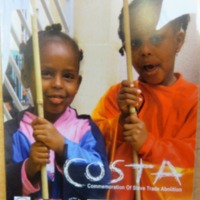
COSTA
COSTA stood for 'Commemoration of Slave Trade Abolition' and was a project of Sul'Art, a community art organisation in Bristol. Sul'Art delivered a programme of music, drama, art and dance to a number of schools and community groups to explore meanings of the bicentenary, working around themes such as migration, identity, celebration of difference, critiques of consumerism and intergenerational dialogue. Sul'Art also presented a number of performances of the professional jazz show ‘King Cotton’, dramatising the story of the cotton industry in music, song and film.
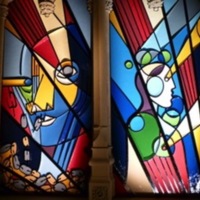
Reconciliation Reredos
The Reconciliation Reredos project to develop a major public artwork was the response by Saint Stephen’s Church in Bristol city centre to a complex historical legacy. St Stephen's was the harbour church which benefitted from merchant’s donations, which effectively ‘blessed’ slave trade ships leaving the port, and which served as the burial site for Africans living in Bristol in the era of the transatlantic slave trade. The project involved the commissioning of a new altarpiece: four pieces of contemporary artwork exploring the mercantile connections that built the city of Bristol were created by artist Graeme Mortimer Evelyn, transforming the stone-carved Victorian Reredos housed in the church since 1875. A community learning programme engaged groups of people from the city through workshops, forums and events around the four focus concepts: Creation, Imago Dei (the Image of God in humanity), Reconciliation and Hope.
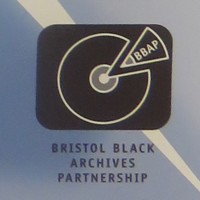
Bristol Black Archives Partnership
The Bristol Black Archives Partnership (BBAP) was set up to collect, protect and make available the heritage of Bristol's local black history. The partnership involved communities, heritage organisations and academic organisations coming together to collect and make accessible the archives - films, photographs, documents and objects - that reflected the experience and contribution of black people in Bristol. BBAP aimed to provide learning resources for a better understanding of Bristol's multicultural history: the 'Me, We, Making History' calendars celebrated local black achievers; 'My Legacy Journal' was made available for African-Caribbean people to record their own family identity, history and stories. A Black Bristolians Teaching Pack was produced, alongside a travelling exhibition based on the project's research entitled 'The Black Presence in Bristol - 16th Century to the Present Day'.
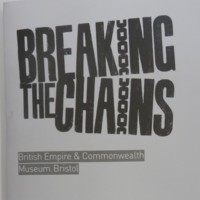
Breaking the Chains
Breaking the Chains opened at the British Empire and Commonwealth Museum to coincide with the bicentenary, and told the story of the British transatlantic slave trade and its abolition. Developed in partnership with Bristol City Council's Museums, Galleries and Archives' Service, the exhibition used artefacts, film and testimony to challenge perceptions about Britain's involvement in the slave trade and its legacy today. It featured a multimedia gallery of digital memories and feelings on the contemporary legacies of the slave trade; interactive sound stations to see and hear personal testimonies and the power of black music; and the ‘Me deya’ gallery, led by Firstborn Creatives, a collection of work from artists and communities who wished to share their creative pieces about the legacies of the slave trade. Associated events included African music for children, community dance events and public debates.
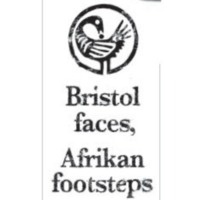
The Adisa Project: Bristol faces, Afrikan footsteps
The Adisa project gave a group of 20 young people of African and African Caribbean heritage the chance to investigate their roots both in Bristol and Africa. The group researched the history and legacies of Bristol's involvement in the trade in enslaved Africans, and its impact on one African country: Ghana. This was a community partnership project in collaboration with the Bread Youth Project, Full Circle Youth and Family and the Mill Youth Centre. The group opened their own exhibition, 'Afrikan Footsteps' at the City Museum and Art Gallery, after a two-week research trip to Ghana to learn about the country's history and culture. The exhibition included short films made by the participants; a Quotes Wall, taken from young people’s interviews with members of their local community; a wall of their personal heroes; a photographic exhibition of their trip; and 'Ma’afa Journey', a film recording their personal reactions to places visited in Ghana.
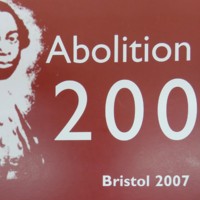
Abolition 200
Bristol was major trading port for the transatlantic slave trade in the 18th century. The city of Bristol marked the bicentenary of the Abolition Act with more than 100 events across the city - exhibitions, plays, debates, talks, concerts - under the umbrella organisation Abolition 200. In January 2007, city leaders signed a declaration of regret for the city's role in the trade. Over the weekend of 24-25 March, bells rang out across the city and a Service of Remembrance and Reconciliation was held at Bristol Cathedral, organised by a partnership of the Cathedral and the Council of Black Churches. 2007 was themed as the Year of Black Achievement, aiming to bring better provision of black heritage resources to schools in Bristol, with a particular focus on black attainment. Over 30 creative community projects were funded by Abolition 200 - including art installations, educational projects and community theatre - to reflect the themes of education, commemoration and legacy.
Featured here are some of the events from Abolition 200.
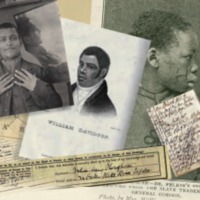
History Detectives: Black People in the West Midlands 1650-1918
SCAWDI are a Birmingham based community group specialising in working with local volunteers to research the early presence of Black people in the West Midlands and learn more about their local history. Different projects sought to explore this heritage. ‘In the beginning …’ looked at enslaved Africans who came to the West Midlands to live with wealthy land owners in the area’s stately homes. ‘History Detectives’ took this work further to identify and construct biographies for the black individuals who came to the West Midlands before 1918. The project created a database of almost 200 individuals: the characters explored connect to themes of slavery, class, migration and religion. ‘A day in the life …’ created a black heritage trail detailing the locations attached to these stories.